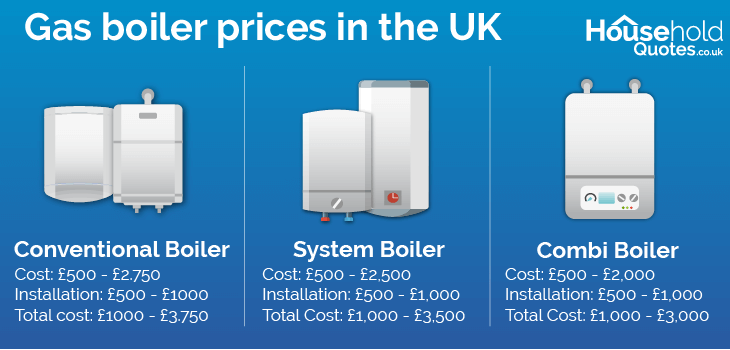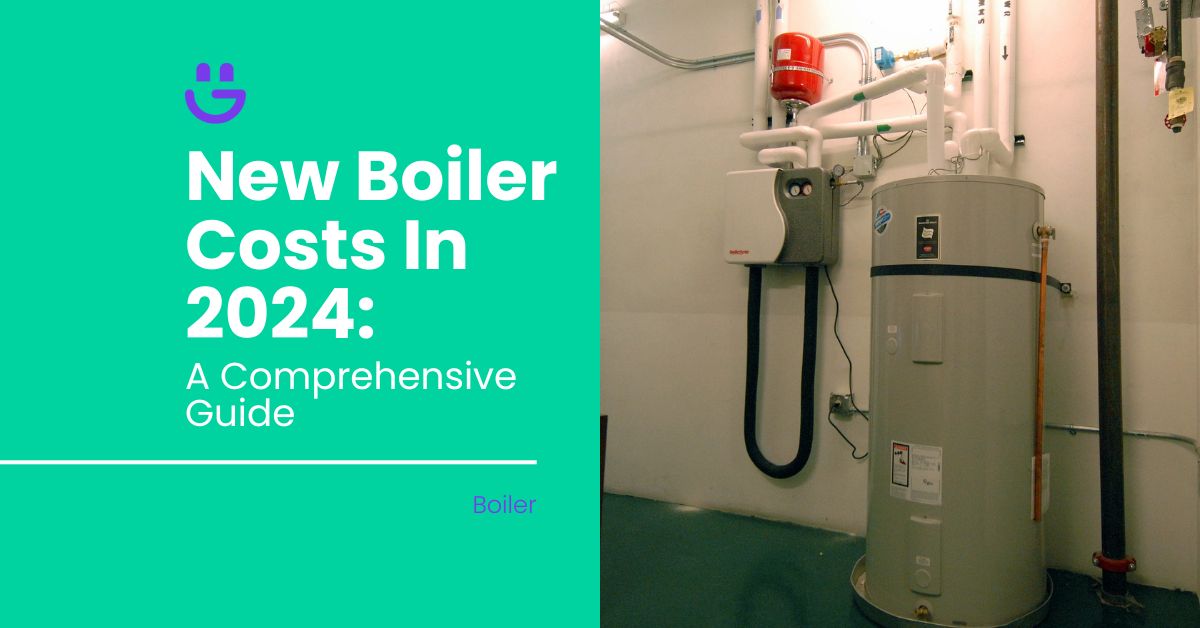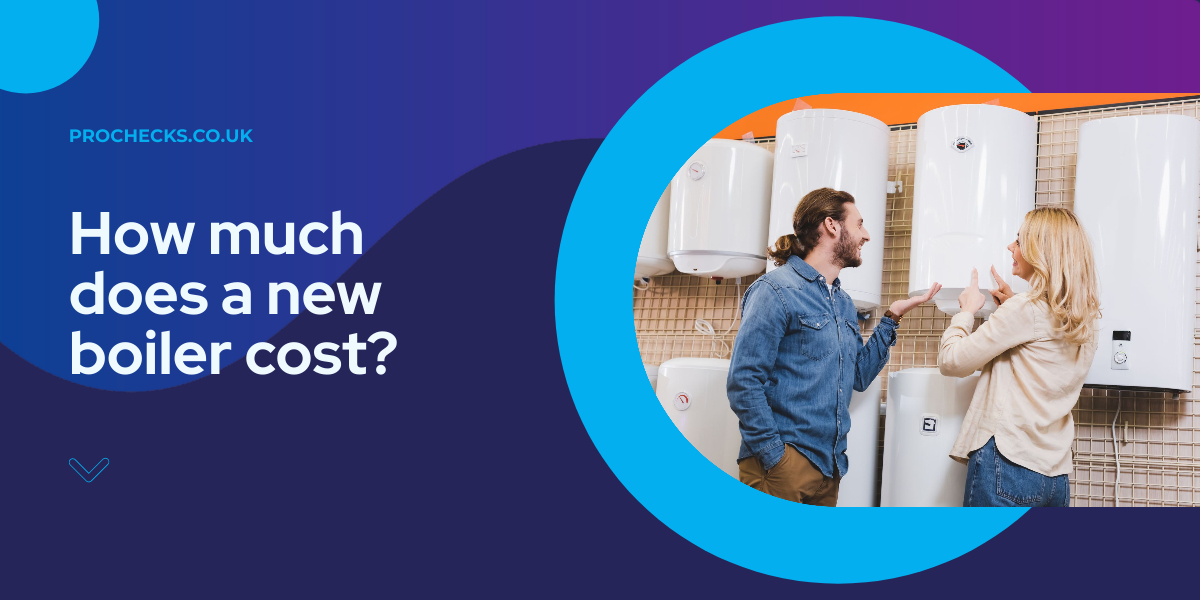How Much Does A New Boiler Cost For A House

Understanding the Cost of a New Boiler for Your Home
Replacing an aging or inefficient boiler is a significant investment, but one that can yield substantial long-term savings and improve your home's comfort. However, understanding the true cost of a new boiler involves more than just the initial purchase price. This article breaks down the various factors influencing boiler costs, explores potential savings, and highlights the benefits of energy-efficient upgrades.
Factors Influencing Boiler Costs
The price of a new boiler can vary significantly based on several key factors:
- Boiler Type: Different boiler types have different price points. The three main types are:
- Combi Boilers: These boilers provide both heating and hot water on demand, eliminating the need for a separate hot water tank. They are typically the most compact and often the least expensive option, ranging from $2,000 to $5,500 for the unit itself.
- System Boilers: System boilers heat water and store it in a hot water cylinder. They are suitable for homes with higher hot water demands. Expect to pay between $2,500 and $6,000 for the boiler itself.
- Regular (Conventional) Boilers: Also known as heat-only boilers, these require both a hot water cylinder and a cold water storage tank. They are often found in older homes. The boiler unit price ranges from $2,000 to $5,000.
- Boiler Size (BTU Output): Boiler size is measured in British Thermal Units (BTUs). The appropriate size depends on your home's heating needs, which are influenced by factors such as square footage, insulation levels, and climate. A larger BTU output means a higher price. Getting the right size is crucial; an oversized boiler is inefficient, and an undersized boiler won't adequately heat your home. Consulting with an HVAC professional is vital for accurate sizing.
- Efficiency Rating (AFUE): The Annual Fuel Utilization Efficiency (AFUE) rating indicates how efficiently a boiler converts fuel into heat. A higher AFUE rating means lower energy bills. Energy Star certified boilers typically have AFUE ratings of 95% or higher. While these models often come with a higher upfront cost, the long-term savings can be significant. Look for boilers with an AFUE of 90% or greater to maximize efficiency.
- Brand and Features: Brand reputation, warranty terms, and included features (like smart controls) all impact the price. Some brands are known for their durability and reliability, while others offer more advanced technology.
- Installation Costs: Installation is a major cost component. Labor rates vary depending on your location and the complexity of the installation. Factors affecting installation costs include:
- Existing Pipework: Alterations or upgrades to existing pipework can add to the cost.
- Ventilation: Proper ventilation is essential for safe and efficient boiler operation. The cost of ventilation installation or upgrades depends on the boiler type and your home's existing setup.
- Removal of Old Boiler: Removing and disposing of the old boiler will incur additional costs.
- Permits and Inspections: Local building codes may require permits and inspections, adding to the overall cost.
Typical Cost Breakdown
Here's a general cost breakdown to give you a clearer picture:
- Boiler Unit: $2,000 - $6,000
- Installation: $1,500 - $5,000 (depending on complexity)
- Permits and Inspections: $50 - $500
- Removal of Old Boiler: $100 - $500
Total Estimated Cost: $3,650 - $11,500
It's always recommended to get quotes from at least three different HVAC contractors to compare prices and services. Ensure that the quotes are detailed and include all costs, including labor, materials, and permits.
The ROI of Energy-Efficient Boilers
While the initial cost of a high-efficiency boiler might seem daunting, the long-term return on investment (ROI) can be substantial. Here's how:
- Reduced Energy Bills: High-efficiency boilers consume less fuel to produce the same amount of heat, resulting in lower monthly energy bills. A boiler with a 95% AFUE rating can save you up to 30% on your heating costs compared to an older, less efficient model.
- Increased Home Value: Upgrading to a new, energy-efficient boiler can increase your home's value, making it more attractive to potential buyers.
- Reduced Carbon Footprint: Energy-efficient boilers contribute to a smaller carbon footprint, helping you do your part for the environment.
- Fewer Repairs: New boilers are typically more reliable and require fewer repairs than older models, saving you money on maintenance costs.
Example: Let's say your current boiler has an AFUE of 80% and you spend $2,000 per year on heating. Upgrading to a 95% AFUE boiler could save you approximately $300 per year (15% savings). Over a 10-year lifespan, that's a total savings of $3,000.
Government Rebates and Incentives
Many government agencies and utility companies offer rebates and incentives for homeowners who install energy-efficient boilers. These incentives can significantly reduce the upfront cost of a new boiler. Check the Energy Star website and your local utility company's website for available rebates and tax credits. Some programs offer rebates of several hundred dollars for qualifying boilers.
Smart HVAC Integration: Maximizing Efficiency
Integrating your new boiler with smart home technology can further enhance its efficiency and convenience. Here's how:
- Smart Thermostats: Smart thermostats learn your heating patterns and automatically adjust the temperature to optimize energy consumption. They can also be controlled remotely via a smartphone app, allowing you to adjust the temperature even when you're away from home.
- Zoned Heating: Zoned heating systems allow you to control the temperature in different areas of your home independently. This can save energy by heating only the rooms that are being used.
- Sensors: Wireless sensors can monitor temperature and humidity levels in different rooms and provide data to the smart thermostat, allowing for more precise temperature control.
By using a smart thermostat, you can potentially save an additional 10-15% on your heating bills. Furthermore, many smart thermostats provide detailed energy usage reports, allowing you to track your savings and identify areas for further improvement.
Choosing the Right Boiler: Key Considerations
Selecting the right boiler for your home is a critical decision. Here are some key factors to consider:
- Heating Needs: Assess your home's heating needs based on square footage, insulation levels, and climate. Consult with an HVAC professional to determine the appropriate BTU output for your boiler.
- Hot Water Demands: Consider your household's hot water consumption. If you have a large family or frequently use multiple showers simultaneously, a system boiler or regular boiler with a hot water cylinder might be a better choice than a combi boiler.
- Space Constraints: Consider the available space for the boiler. Combi boilers are typically the most compact option, while regular boilers require more space due to the separate hot water cylinder and cold water storage tank.
- Budget: Set a realistic budget for your new boiler, taking into account the cost of the unit, installation, permits, and potential rebates.
- Warranty: Check the warranty terms offered by different manufacturers. A longer warranty can provide peace of mind and protect your investment.
Professional Installation is Crucial
Proper installation is essential for ensuring the safe and efficient operation of your new boiler. Always hire a qualified and licensed HVAC contractor to install your boiler. A professional installer will ensure that the boiler is properly sized, vented, and connected to your home's heating system.
Important: Improper installation can void the warranty and potentially create safety hazards.
Maintenance and Longevity
Regular maintenance is crucial for prolonging the lifespan of your boiler and ensuring its continued efficiency. Schedule annual maintenance checks with a qualified HVAC technician. These checks should include:
- Inspection of the boiler's components: This includes checking for leaks, corrosion, and other signs of wear and tear.
- Cleaning of the boiler: Cleaning the burner and other components can improve efficiency.
- Testing of the safety controls: Ensuring that the safety controls are functioning properly is essential for safe operation.
- Adjustment of the boiler's settings: Adjusting the settings can optimize efficiency and performance.
With proper maintenance, a new boiler can last for 15-20 years or more.
Conclusion
Investing in a new, energy-efficient boiler is a smart decision that can save you money on energy bills, increase your home's value, and reduce your carbon footprint. By understanding the factors influencing boiler costs, taking advantage of government rebates and incentives, and integrating your boiler with smart home technology, you can maximize your ROI and enjoy a more comfortable and energy-efficient home. Remember to consult with qualified HVAC professionals to ensure that you choose the right boiler for your needs and that it is properly installed and maintained.










